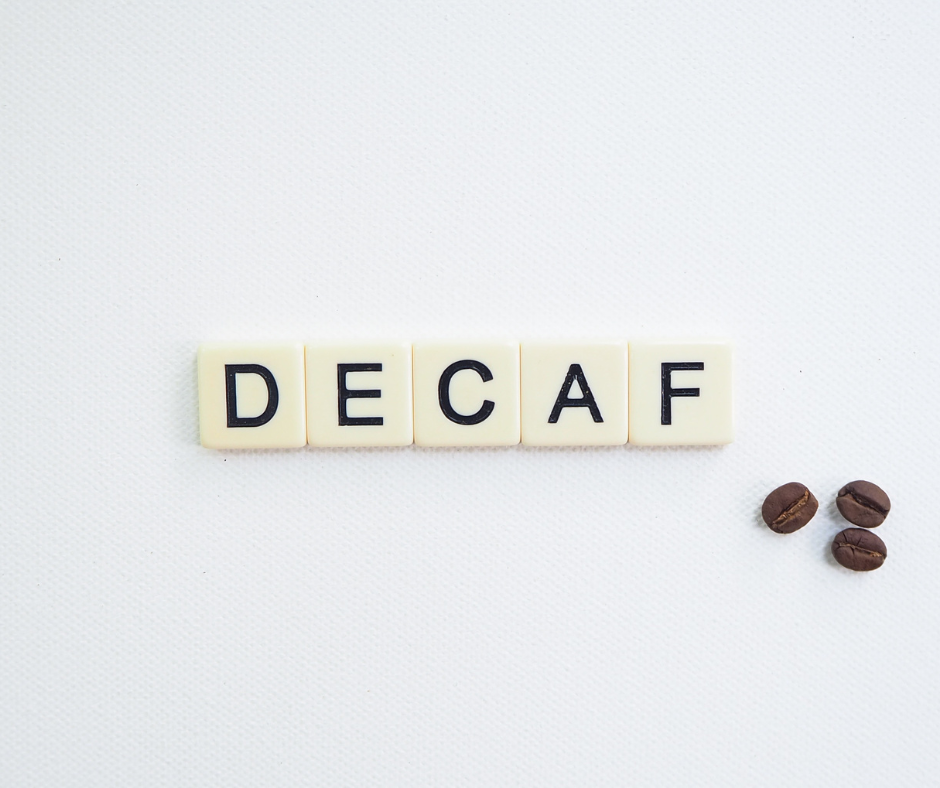Nowadays, we are used to science offering solutions to the negative side effects of our indulgences: burgers without the guilt of an animal dying, yogurts with all of the fat removed, even whiskey without the risk of a hangover the next day!
While many of us imbibe in the daily ritual of coffee drinking primarily for the (wondrous, magical, necessary) jolt it gives us, there are some who want or need to have their coffee without the caffeine content, and all of the side effects that can come from this. Enter decaf coffee beans.
But what exactly is decaf coffee and how does it work? We thought we’d put together a ultimate guide to all of your decaf related questions, including:
Why do people drink decaf coffee?
Does decaf coffee taste different?
Can you get decaf coffee beans
Does decaf coffee dehydrate you?
Is decaf coffee a diuretic?
Is decaf coffee good (or bad) for you?
How much caffeine is in decaf coffee?
So pull up a chair, make a (decaf) brew and let’s get stuck into the world of decaffeinated coffee beans and all the benefits and caveats that come with them.

Why do people drink decaf coffee?
There are a variety of reasons why people may choose to drink decaffeinated coffee, most of them stemming from the effect that caffeine has on their body and mind. While many say that you cannot taste a difference between decaf and regular coffee (a debate that continues to this day) there are very few who drink decaf specifically for the taste over regular Joe.
Just a few of the more common reasons for choosing decaf coffee are:
- To allow for better sleep, many people switch to decaf in the afternoon.
- Due to a caffeine sensitivity.
- Pre-existing conditions that can be negatively affected, or pregnancy.
- A desire to avoid the side effects of caffeine.
Does decaf coffee taste different?
The crux of the answer to this is: it depends on how the caffeine was extracted.
Caffeine, like most alkaloids, has a bitter flavour, which goes some way into explaining why decaf beans can taste sweeter. Decaf coffee is generally described as tasting sweet and dark toned, although they can also taste indistinguishable from regular coffee. How? To understand this we need to look at how the caffeine is removed. There are 4 main types of decaffeination process:
- Water
- A mixture of water and solvents applied directly
- A mixture of water and solvents applied indirectly
- Water and supercritical carbon dioxide.
The first and last types of extraction will leave the coffee taste relatively the same as before, but the use of solvents in the middle two are the reason for taste alteration. The most commonly used solvents are methylene chloride and ethyl acetate, the latter of which is a natural solvent: it is a natural ether commonly found in pears and apples. It is this that people sometimes taste in their decaf coffee.
Of course, being able to taste whether your coffee is decaf or not will come from personal taste sensitivity and how familiar you are with the taste of each. Plus, If you have your coffee with milk and sugar, these will largely mask any difference in taste.
Can you tell a decaf simply by looking at it? You can ask a harried barista that there is pretty much no way to tell a decaf from a regular coffee by sight and smell alone.
Can you get decaf coffee beans?
Yes! Just because you are choosing to forego the caffeine content, doesn't mean you have to miss out on the fresh taste of newly roasted beans or the fun that comes from honing a brewing method that is just so. We offer a fantastic range of some of our best-selling single origin coffees decaffeinated, which can be purchased as whole beans or ground to suit your preferred brewing method.
Does decaf coffee dehydrate you?
Many coffee shops serve espresso with a glass of water, due to the common knowledge that coffee can be dehydrating, but does decaf coffee dehydrate you in the same way? Technically, no. In fact it might be the opposite. Regular caffeinated coffee is a diuretic, meaning it makes you need to urinate more. However, studies show that the liquid content found in most coffee drinks (especially americanos, drip filters and beverages made at home with instant coffee) negates the diuretic effect of caffeine on the body.
Is decaf coffee a diuretic?
A diuretic is a substance that promotes the excretion of urine. You’d think that that means that any drink would naturally fall under this category, but there are some that actively increase the production of urine, making you need to go to the loo that little bit more often.
Now, as the diuretic properties are contained within the caffeine part of coffee, once this is removed, so is the urge to urinate more frequently, so no, decaf coffee is not a diuretic any more than your average glass of water.
As for the other, um, waste creating benefit of coffee - you’ve got the fibre content of your morning coffee to thank for that.

Is decaf coffee good (or bad) for you?
Aswell as being a vector for increasing your water intake and aiding in the smooth running of your waterworks, coffee has been proven to have bountiful benefits to your health. But is decaf coffee good for you in the same way? Yes and no.
The good news is that polyphenols are still present even when the caffeine has been removed, and these compounds are at the heart of coffee’s health promoting benefits.
However the debated negative side effects of decaf coffee come primarily from the extraction method used. You may have chosen to ditch caffeine to avoid overstimulation, only to then be consuming some fairly nasty chemicals by choosing decaf.
Here at the Coffee Bean Shop, we only use the Swiss Water Method for our decaf coffee beans, not only because it allows the taste of the beans to take centre stage, but also because we simply do not want to taint our all natural product with the chemicals usually used to remove the caffeine.
How much caffeine is in decaf coffee?
A common misconception is that decaf means coffee that contains absolutely no caffeine. That is not quite the case.
Typically a decaf cup of coffee will have 2 to 15 mg per 8 oz serving, although this will vary depending on the bean varieties used. Remember that robusta has more caffeine than arabica as a general rule but this will vary depending on other aspects, such as the location the beans were grown, the decaf process used and the way in which you are brewing your coffee.
This may still sound like a lot, but when you compare that to a regular cup which can contain anything from 80-200mg of caffeine in it, with a regular amount of coffee in it.
If we are going to get technical, the FDA has ruled that to be classed as a decaffeinated product, at least 97% of the caffeine has to be removed.
* * *
Do you now feel like you could take a pop-quiz on everything decaf bean related? Or maybe you just really want to try some for yourself. You’re in luck because our amazing decaffeinated coffee beans are in stock, and as they are made using the swiss water method, you can be sure that all you are getting is really good tasting coffee, without any nasty chemicals.

